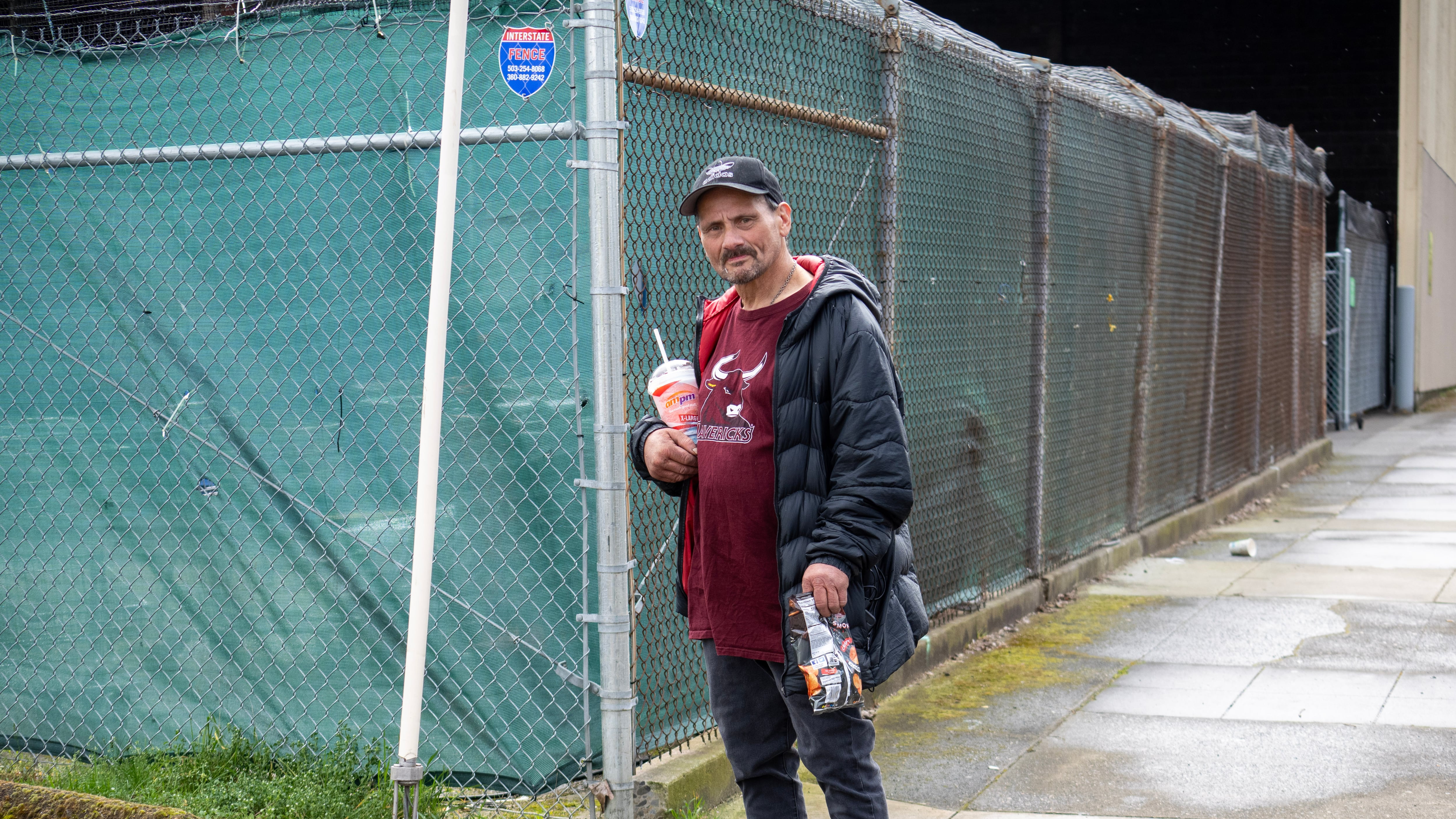In the current fiscal year, only 14% of residents who entered one of the city’s eight pod shelters—and then moved out—exited into permanent housing.
That’s a far lower share than the 47% of participants who moved into permanent housing when leaving the city’s alternative shelters during the previous fiscal year.
The steep drop is a warning sign for a model of shelter that city officials have in recent years insisted is working to move people efficiently from the streets into stable, long-term housing.
In fact, officials have often touted it as the area’s most effective model for moving people from the streets into housing.
The new data comes from a presentation that Multnomah County Commissioner Shannon Singleton delivered earlier this week. Singleton and other county officials debuted a new dashboard that gave a more complete—and more dismal—picture of the city’s homelessness crisis.
The data Singleton highlighted shows that close to 15,000 people across the county are considered homeless, with nearly 7,000 living on the streets, in RVs or in cars. That’s a significantly higher number than the county has previously reported in its “point-in-time” counts, and it’s also higher than the county’s 11,400 tally in January 2024. The increase is thanks in part to a long-promised by-name directory showing who is homeless in the county and what they need.
It also shows what they aren’t getting: an apartment.
The city attributes the big drop in housing placements from its alternative shelters this year to a lack of rental assistance money to help people move into apartments.
“County and state one-time money has come to an end, which helped to place a number of people into housing,” city spokesman Rob Layne says. “With those dollars diminished, the city has had to rely on other county dollars and programs to support exit programs to place participants out of shelter.”
Layne says the city and county were recently “working together to allocate new funding for placement out of shelter in a way that would support city sites.”
But Layne says financial shortfalls at the county stopped that work: “After that funding process was started, the placement out of shelter assistance was paused due to concerns about the county’s funding gap and the uncertainty of funds being available into the second year.” (The county earlier this year reported a $104 million budget gap for its homeless services, taking other area elected officials—including Gov. Tina Kotek—by surprise.)
Layne says the county recently notified the city that money for placements will start to flow again soon.
Skye Brocker-Knapp, the director of the office that oversees all the city’s alternative shelters, Portland Solutions, says the city was able to move such a high percentage of shelter participants into apartments last year because it received adequate rental assistance dollars from the county.
(Portland Solutions is the newly formed city office that oversees all of the city’s tiny pod and RV villages, which comprise around 750 units of temporary shelter.)
WW reported on similar city frustrations with the county in March 2024. At the time, the city alleged the county hadn’t provided it with the rental assistance dollars that the city needed to move people from its largest pod village—Clinton Triangle—which meant that the flow of residents moving from the encampment into apartments had slowed to a trickle.
The city and county, though, did find funding to resume those placements in the spring of 2024.
Layne, the city spokesman, says Singleton’s data only captures nine months of the current fiscal year.
“So, there is still time to catch up once those county funds are released,” Layne says.
